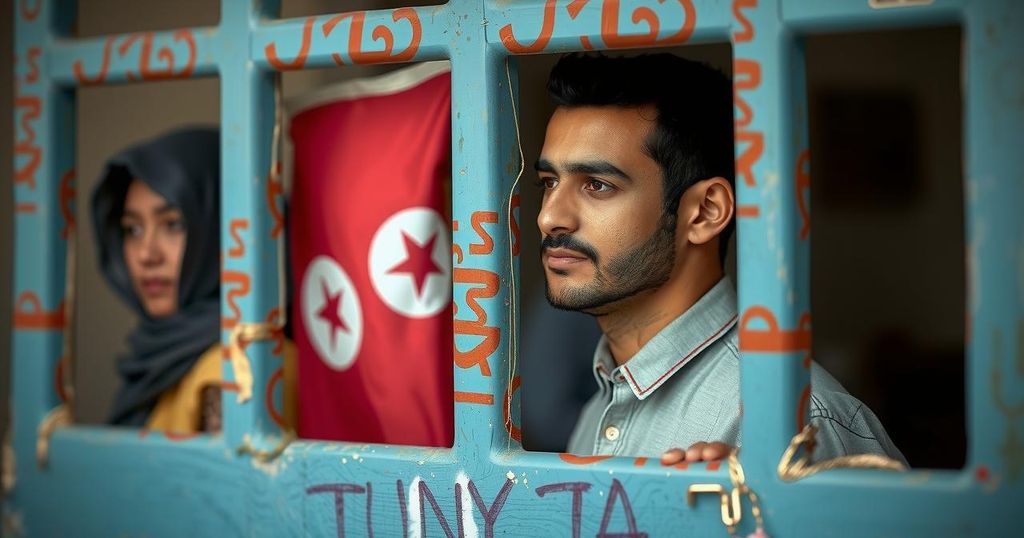A Tunisian human rights group is urging the release of 120 nationals held in Libya. Mustafa Abdel Kabir reported many face minor or fabricated charges, primarily arising from work-related disputes. He stressed that these detainees are ordinary citizens who legally entered Libya. The organization seeks cooperation between Tunisian and Libyan authorities to facilitate their release, focusing on the plight of related women and children still in custody.
A prominent Tunisian human rights organization has called upon authorities to facilitate the release of 120 Tunisian nationals currently held in Libyan prisons. Mustafa Abdel Kabir, the director of the Tunisian Observatory for Human Rights, indicated that the majority of these detainees are subjected to what he described as “minor or fabricated charges,” resulting in sentences that range from one to five years.
Abdel Kabir elaborated that numerous detainees were arrested due to work-related disputes, failure to present medical certifications, or purported customs infringements. He stressed that every detainee entered Libya through legal channels, whether as workers, traders, or visitors, underscoring their ordinary status.
Additionally, Abdel Kabir firmly rejected any allegations linking these individuals to extremist activities, categorizing them instead as “ordinary citizens,” predominantly within the age bracket of 22 to 30 years, with some aged between 45 and 55. He implored the Tunisian government to engage with Libyan authorities toward securing the release of these individuals, noting that many have already completed half of their prison sentences. Furthermore, he addressed the situation of 32 Tunisian women and children, who are related to persons associated with the Islamic State group and are still detained in Libya, stressing the urgent need for their repatriation.
The ongoing plight of Tunisian citizens detained in Libya raises significant concerns regarding legal practices and human rights within the region. Libya has observed a turbulent political landscape, resulting in uncertain legal repurcussions for foreign nationals, especially amid the backdrop of conflict and instability. The Tunisian Observatory for Human Rights advocates for the protection of its citizens abroad, urging diplomatic intervention to address grievances and promote justice.
In conclusion, the situation of the 120 Tunisian nationals in Libyan prisons highlights serious concerns over legal fairness and human rights protections in both Tunisia and Libya. The Tunisian Observatory for Human Rights, led by Mustafa Abdel Kabir, is actively seeking governmental cooperation to ensure these individuals’ timely release, emphasizing their status as law-abiding citizens. Furthermore, the plight of Tunisian women and children connected to detainees needs urgent attention as their rights and dignities remain at stake.
Original Source: libyaobserver.ly






